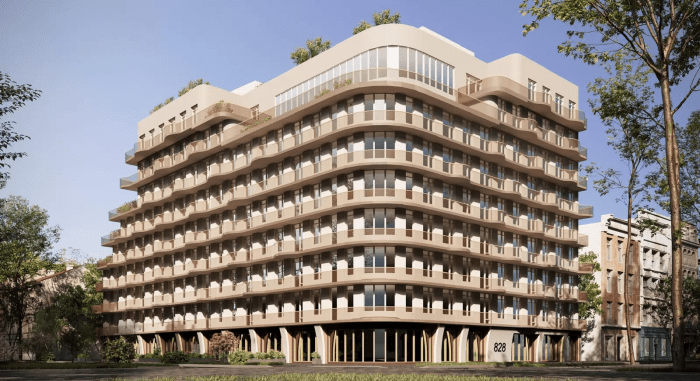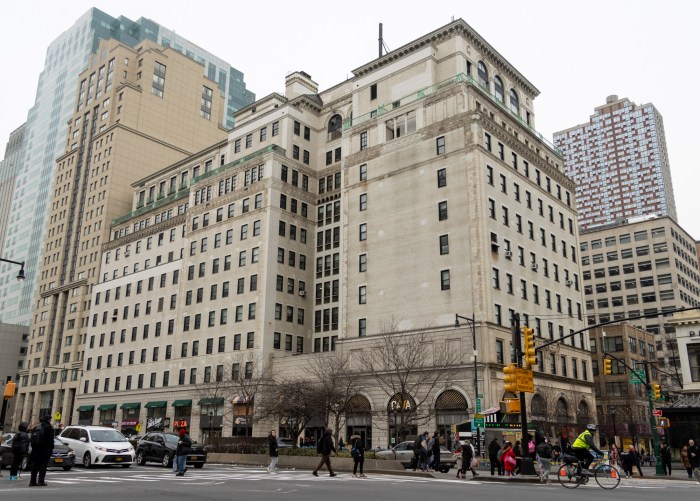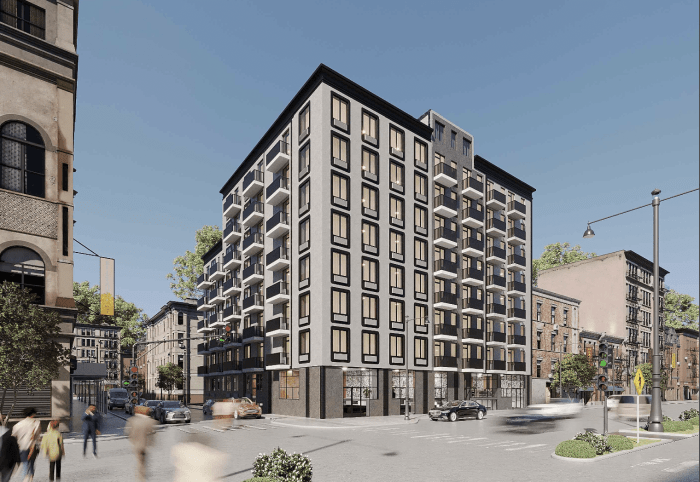The Brooklyn builder that wants to erect a controversial megadevelopment on the edge of Boerum Hill recently turned its attention to Dumbo, scooping up two neighboring Jay Street buildings in the area’s historic district that its bigwigs hope to transform into a single, live-work space for creative types, they told city preservationists last week.
“Live-work units with commercial use — we imagine a lot of folks in Dumbo have art or photo studios,” said Alloy Development’s AJ Pires during a July 17 presentation to the Landmarks Preservation Commission, which must sign off on the scheme because the properties sit within the landmarked Dumbo Historic District.
Pires and his business partner Jared Della Valle bought the combined lots at 42-50 Jay St. in June for an undisclosed price, according to city records, but a Real Deal report estimated the Alloy leaders doled out more than $50 million to purchase the connected pair from social-services provider Phoenix House — which just last year opened a swanky rehab facility at the location that closed four months after its debut because it struggled to fill beds, according to a Crain’s report.
The developer of 80 Flatbush in Boerum Hill declined to comment on its new Dumbo project, but records show Alloy plans to shell out $6,187,020 to transform the old rehab center and its adjoining building — which housed Phoenix House administrative offices — into a 46-unit residential complex with perks that include a gym, storage, recreation spaces, and other amenities.
The makeover calls for adding two stories atop the eight-floor structure at 42 Jay St., as well as painting its facade, reconfiguring its ground level, and installing windows and mechanical units. And the builders’ proposed similar tweaks to the six-floor building at 50 Jay St., including adding an extra story on top, altering the ground floor, and putting in new windows and mechanical equipment.
The developers also want to create a new entry to their planned complex, which will be renamed 168 Plymouth St., via a courtyard off of that street, where they claimed people used to enter the properties in the late 1800s and early 1900s when they were occupied by the Masury Paint Company.
“One of the things we’re proposing is to move the primary building entrance to Plymouth, and use the courtyard in the back as an entrance for the building,” Pires said.
Other changes include painting over a Plymouth Street gate attached to one of the buildings, and sticking a bollard outside the new entrance on that street to secure it, according to Pires.
Most of the commissioners cheered the proposal, but they did not vote on it at the meeting, instead asking Alloy to return with a slightly revised version that they can weigh in on at a to-be-determined session.
A local preservationist also applauded the proposal, but urged the builder to ensure any construction does not damage Plymouth Street’s ancient Belgian blocks if it ultimately receives the green light.
“This will be a beautiful enhancement of one of the neighborhood’s favorite buildings,” said Doreen Gallo, leader of civic group the Dumbo Neighborhood Alliance. “We ask that Alloy be diligent on this 100-percent Belgian-block street, and that the blocks be carefully numbered and put back in their rightful place.”
The firm’s Jay Street project follows its several already completed developments within the Dumbo Historic District, which include 185 Plymouth St., 1 John St. inside Brooklyn Bridge Park, and 192 Water St.























